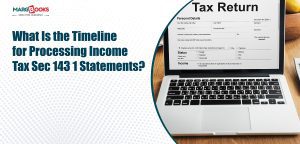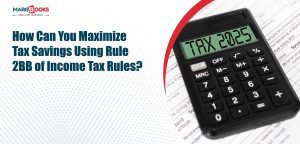You just got a letter from the tax department about your SFT-005 Time Deposit. Your heart skips a beat. What’s going on? Did you do something wrong? Don’t panic! This happens to thousands of people every year. Banks are required by law to report certain financial transactions to the Income Tax Authority.
Your time deposit crossed a specific threshold, and now the tax folks want to make sure you’re paying what you owe. Let’s break down exactly what this means for you and why it’s not as scary as it sounds.
What Exactly Is an SFT-005 Time Deposit?
Think of SFT-005 as a special code the government uses to track your money. It’s like a filing system for your financial transactions.
The Basics You Need to Know
When you put money in a fixed deposit or time deposit, the bank keeps detailed records. Here’s what triggers the SFT-005 Time Deposit reporting:
- Deposit amounts over ₹10 lakh in a single transaction
- Multiple deposits totaling ₹10 lakh or more in a financial year
- Interest earned exceeding certain limits
- Premature withdrawal penalties and adjustments
The bank doesn’t report this to cause you trouble. They’re just following the rules. It’s similar to how MargBooks helps businesses track their transactions automatically. Banks have their systems to monitor and report large financial movements. Similarly, GST billing software ensures you’re compliant with tax obligations.
Why Banks Can’t Keep Quiet About Your Money?
Banks aren’t gossiping about your finances. They’re legally bound to share this information. Think of it like a security guard who has to report everyone entering a building. The guard isn’t being nosy, they’re doing their job.
How does this affect your Tax Situation?
Getting flagged for an SFT-005 Time Deposit doesn’t mean you’re in trouble. It just means the tax department wants to verify your income sources.
What the Tax Department Wants to Know?
The Income Tax Authority uses this information to:
- Match your declared income with your actual deposits
- Ensure you’re paying tax on interest earned
- Verify the source of your deposited funds
- Check for any undisclosed income
Remember, if you’ve been honest about your income and paid your taxes properly, you have nothing to worry about. It’s like when MargBooks users generate reports, everything’s transparent and above board.
Common Scenarios That Trigger Reports
You might wonder why your deposit got flagged. Here are the most common reasons:
- Salary bonuses or arrears deposited in a lump sum
- Sale of property or investments
- Insurance maturity proceeds
- Loan amounts deposited temporarily with SFT-005 Time Deposit.
- Business income deposited in personal accounts
What Should You Do Now?
Don’t ignore that letter from the tax department. Here’s your action plan:
Step 1: Gather Your Documents
Collect all paperwork related to your deposit:
- Bank statements showing the deposit
- Source documents (salary slips, sale deeds, etc.)
- Previous tax returns
- Any correspondence with the bank
Step 2: Review Your Tax Returns
Check if you’ve properly declared:
- The interest income from your deposit
- The source of the deposited amount
- Any TDS deducted by the bank
If you’re running a business, softwares such as online billing software can help you track all your transactions properly.
Step 3: Respond Appropriately
When you receive notices:
- Don’t panic or ignore them
- Respond within the given timeframe
- Provide clear documentation
- Consider consulting a tax professional if needed
Preventing Future Surprises
Want to avoid unexpected tax notices? Here’s how:
Keep Better Records
When MargBooks helps businesses maintain accurate financial records, you should:
- Save all deposit receipts
- Document the source of large deposits
- Keep tax payment receipts
- Maintain a simple record of all major transactions
Be Proactive with Tax Planning
- Declare all income sources honestly
- Pay taxes on time
- Keep your PAN details updated with the bank
- Consider spreading large deposits across financial years if possible
The Bottom Line
Getting reported for an SFT-005 Time Deposit isn’t the end of the world. It’s just the tax system doing its job. The key is staying calm and responding appropriately.
Think of it this way, if you’ve been honest with your taxes, this is just paperwork. If you haven’t, now’s the time to set things right with MargBooks. The tax department isn’t trying to catch you doing something wrong. They’re just making sure everyone pays their fair share.
It shows that large financial transactions are being monitored, which helps prevent tax evasion and keeps the system fair for everyone.




